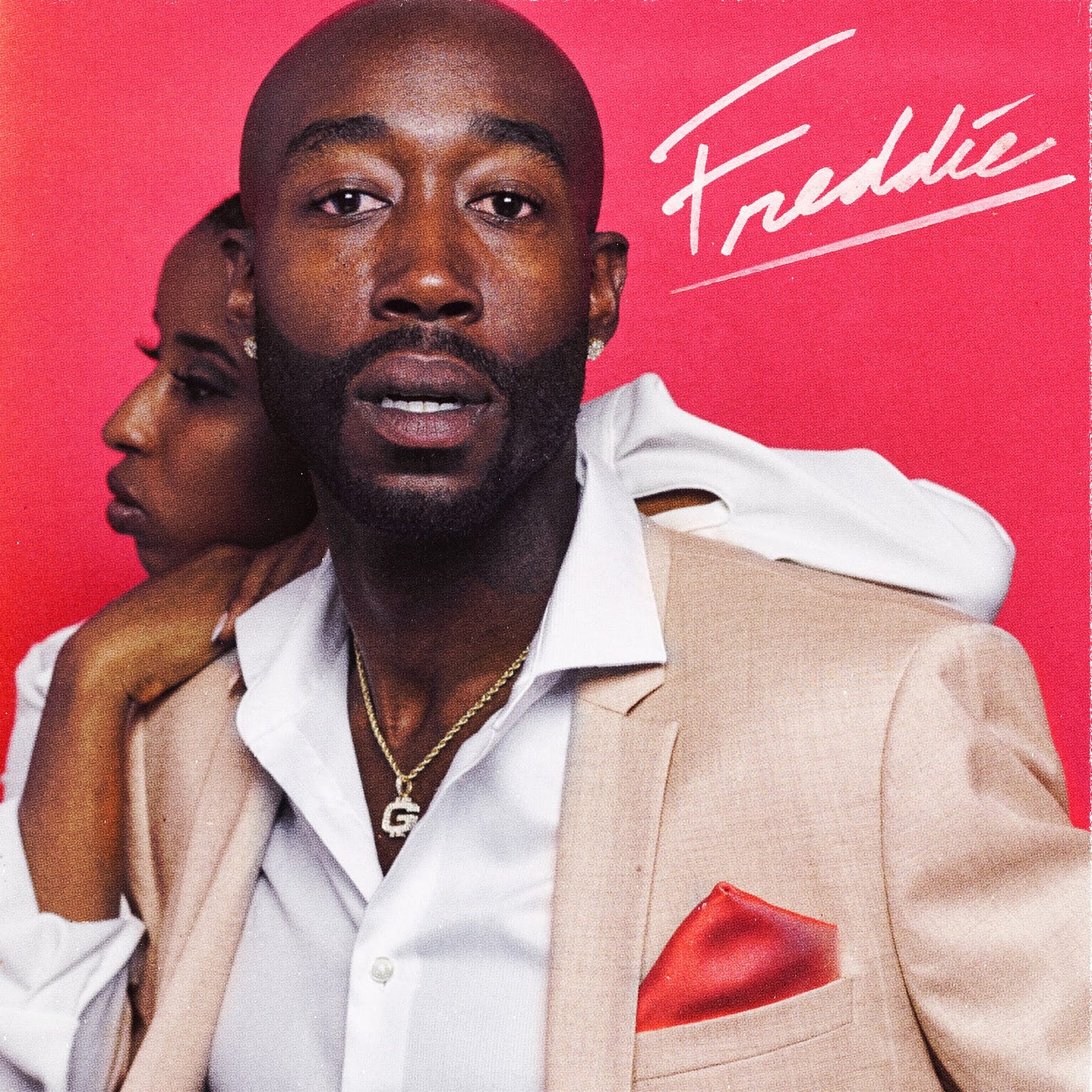Five Years Later: Revisiting Hard-Hitting 'Freddie'
Gibbs' collection elicits a profound feeling of unbridled freedom in Freddie, showcasing the artist's most primal and unadulterated self.
Freddie Gibbs' 2018 offering appears to be teleported from the semi-conscious realm of late 80's 'dead zone' television, reminiscent of a commercial that jolts you awake from a couch slumber at 3 a.m., with the countenance of Luther Vandross imposed on a twilight setting. Gibbs teases, "Are you ready… for Freddie?" while playfully caressing a keyboard, backed by a toll-free number that offers a chance to win a Caribbean cruise upon answering a survey.
Throughout the past ten years, this versatile rapper from Gary, Indiana, has demonstrated an impressive ability to adapt to various music styles, from Madlib's quirky breakbeats to the intense rhythms typical of MoMA PS1. Yet, this new release, Freddie—the album cover that pays a delightful homage to Teddy Pendergrass's self-titled 1979 album—seems unanticipated. Is the artist notoriously known as Gangsta Gibbs set to embrace the tranquillity of the 'quiet storm' genre?
The answer, it turns out, is no. It's difficult to harbor any resentment since Freddie stands as the most potent work from Gibbs in recent years, displaying an infectious enthusiasm that is perhaps unprecedented. When Gibbs first entered the scene, he was quickly hailed for his solemnity in terms of lyrical prowess and the somber themes in his tracks. Eastside Gary provided a fittingly austere setting for his reflective stories.
His lyrics, meticulous yet frank, coupled with a revival of the gangsta rap style, were met with significant approval from critics but were perceived as lacking personal flair. However, in the ensuing decade, Gibbs' style became more relaxed and exploratory without compromising on stark imagery or incisive wordplay. Strangely enough, this evolution has drawn him closer to popular trap sounds than ever before. Nevertheless, Freddie is far from a mainstream appeal; instead, it offers a snapshot of Gibbs at his most uninhibited and quintessential.
Despite the album's concise length of ten tracks—nine of which run under three minutes—one might be inclined to attribute Freddie's brevity to the recent trend of crafting short tracks and mini albums. However, Gibbs had already anticipated this trend with his eight-track album You Only Live 2wice released in 2017. It is likely that a sense of urgency, perhaps sparked by his three-month detention in an Austrian prison in 2016, from which he was eventually acquitted, played a part in this decision. You Only Live 2wice, a thoughtful examination of his environment post-incarceration, conveyed a sense of slowly relaxing tension. A year later, Freddie serves as a triumphant counterpart—a record exuding joy and relief.
Kenny Beats deserves recognition for his significant contributions to this atmosphere of release. The producer, who worked on half of the album's tracks, has been involved in some of the best rap releases of 2018, including Key!’s 777 album and Rico Nasty’s electrifying track "Smack a B*tch.” On "Automatic," Gibbs confidently navigates through a bass backdrop as enveloping as a mist, and "Toe Tag" stands as the album's darkest moment. The highlight of both Kenny's and Freddie's efforts is "Death Row," an unabashed homage to "Boyz-n-the-Hood," featuring Los Angeles' recently-imprisoned local legend, 03 Greedo, in the role of Eazy-E. Throughout the album, Gibbs' delivery is more synchronized than ever, exuberant and flexible, yet never straying from the intended direction.
However, followers of Gibbs' more restrained style won't find this album lacking. "Triple Threat" revisits his smooth, soulful style, its hook delivered in a familiar Midwestern baritone. Although Freddie might appear to have fewer standout lines than usual, Gibbs reserves the album's most profound lyrical moment for its final track, "Diamonds 2". The track showcases the kind of lyrical craftsmanship that serves as a reminder that very few artists can match Freddie Gibbs' level of rapping.


